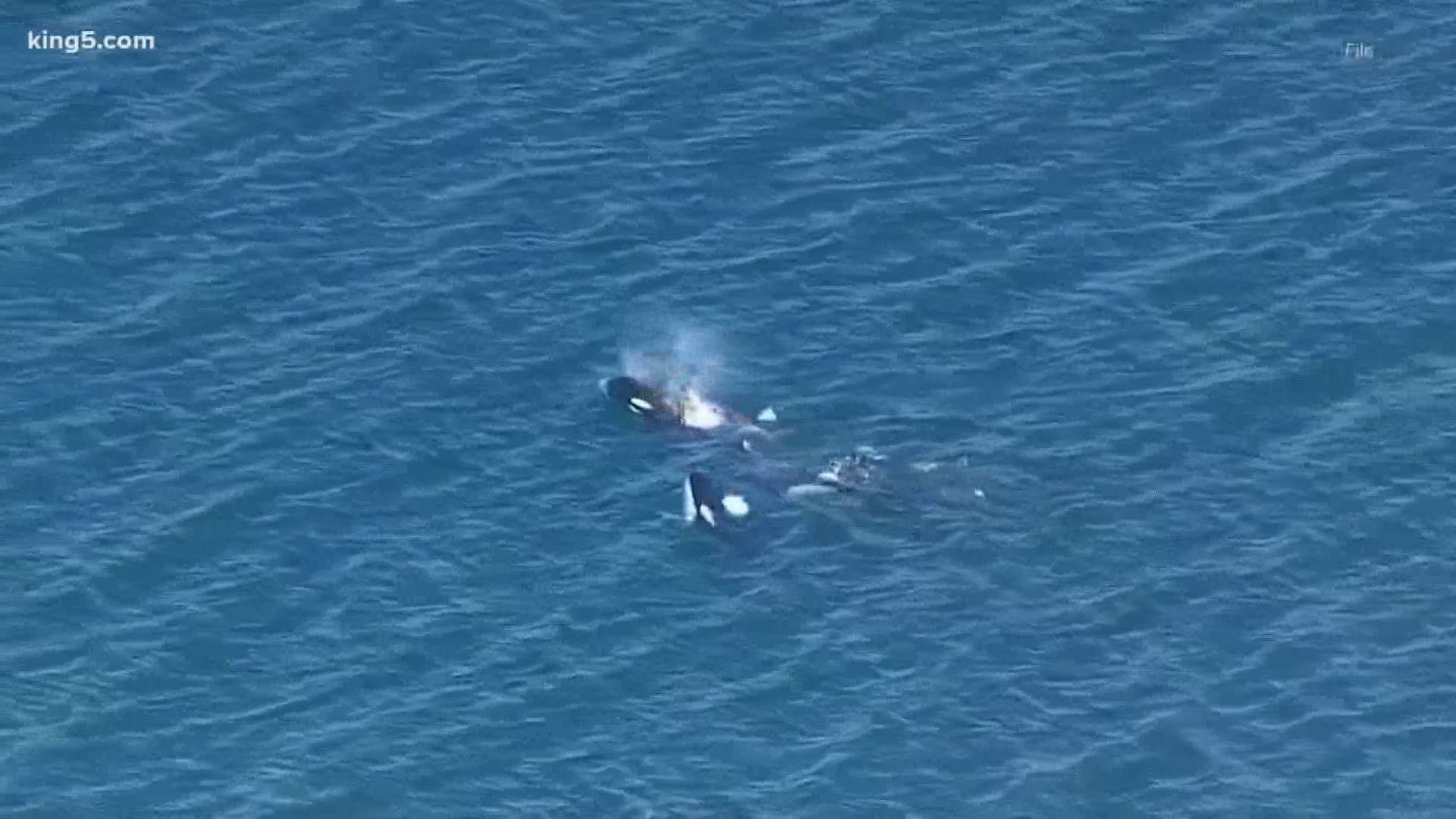SEATTLE — In late July, scientists discovered multiple southern resident orcas are pregnant, but more often than not, their pregnancies fail.
However, biologists are trying to do what they can to prevent that.
“There are only so many females that are in reproductive status, so the fact that we have this hat trick, is a great thing,” said Fred Felleman, the vice president of Port of Seattle and a killer whale biologist. “Hopefully they'll be able to find the fish, and stay fat and happy."
Experts say one of the main reasons 70% of pregnancies fail is the lack of food.
While it is important for orcas to get their fill of Chinook salmon, scientists can’t just dump more salmon into the sea-- a move that could harm the ecosystem.
Instead, they advise boaters to keep away from pods of whales to increase the chances that females will carry a calf to the full 18-month term.
“Say you're trying to eat a sandwich, and somebody comes right up in your face to take a photo ... you'll be startled, you'll pause. It's the same thing. These are smart animals. It's important to give them space, so they can live in peace,” said Capt. Alan Myers with the Washington State Department of Fish and Wildlife.
Boaters are now required to stay at least 300 yards away from the whales and just as importantly, they must slow down to 7 knots or less near a pod.
That goes for small boats and large vessels alike. Just being that close and going too fast disrupts the communication orcas use to find fish.
“The speed of the vessel is tied directly to the sound it makes. It has a very negative impact on these whales. The science has proven that,” Myers said.
If these three pregnant whales can find enough food, experts expect them to deliver their babies soon.

